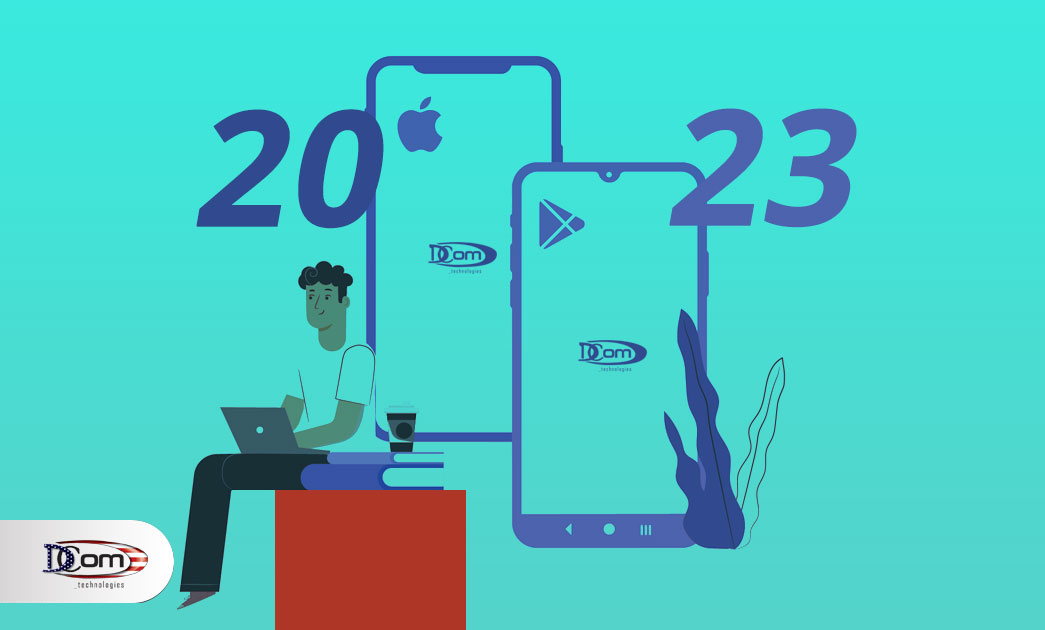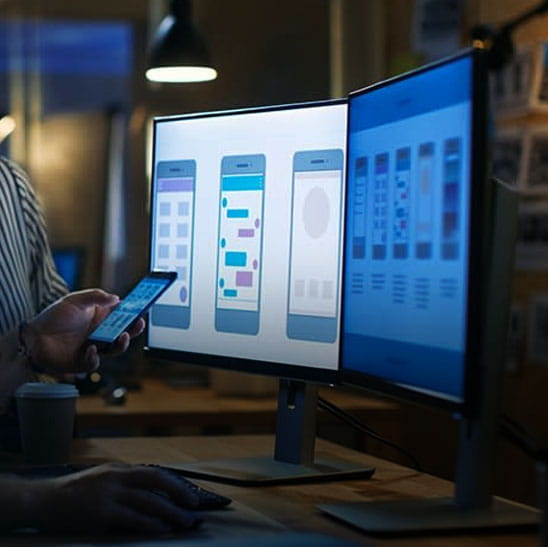A lot of new technology trends will start to appear as 2023 approaches. As new Android and iOS app versions are released, mobile app development trends shift. Mobile app development is currently focusing on AI, ML, AR/VR, and other similar technologies and APIs that help the apps become smarter. Modern customers use their smartphones to pay bills, connect with workers via messenger apps, and make new friends, the demand for high-quality mobile apps that provide this capability grows. In order to increase customer retention, your app must provide a better user experience. Below mentioned are the top 5 mobile app development trends to watch out for in 2023.
1. 5G
The fifth generation of cellular networks will significantly improve speed and reliability over the fourth generations. 5G will enable AR/VR, self-driving cars, the Internet of Things, and other applications to improve networks things. Future apps will use these capabilities to perform tasks we never imagined were possible. Because of the speed of 5G, operations that drain smartphone batteries will be obsolete. Furthermore, 5G has a higher radio frequency and shorter wavelengths, mobile apps will be more precise in geo-targeting and geofencing. Experts of mobile app development company in Melbourne Florida said that it improves mobile streaming and app functionality by allowing Android app developers to include new features without affecting performance.
2. AI & ML
AI and ML can help to speed up app development, they can also help to reduce errors that human programmers might make. Some existing mobile apps personalize specific aspects of a consumer order while incorporating AI components such as chatbots. Over the next ten years, major industries such as healthcare and retail will see an increase in AI-powered apps.
3. AR/VR (Augment Reality/Virtual Reality)
AR/VR technologies have existed since 2020, when COVID-19 began to have an impact on a variety of industries, including manufacturing. Many manufacturing companies began to use augmented reality and virtual reality to create apps that function as virtual production lines with additional workers. As a result, some manufacturing companies reported increased productivity while decreasing operational costs. With the help of AR/VR mobile apps, sales representatives and service providers can now interact personally with their customers. In the coming years, they will improve learning opportunities by making EdTech apps more exciting and engaging audience.
4. Chatbots
Chatbots are already widely used in the enterprise and are critical to the development of Android and iOS apps. Mobile app development company Florida’s professionals said that it is providing faster client responses, Chatbot applications from iOS app development services are commonly used to replace customer service in a variety of ways. AI (Artificial Intelligence), ML (Machine Learning), and NLP (Natural Language Processing) advancements will make chatbots more efficient. Communication with them will become more natural as tools such as sentiment analysis, semantic search, and facial and voice recognition are used.
5. Cloud Computing
Cloud computing is one of the most powerful technologies to use in mobile app development. It is no longer necessary to create apps for various platforms and smartphones. Cloud computing applications can run in web browsers and work perfectly across multiple platforms. Cloud computing everything is stored on a server and is accessible via the internet.










